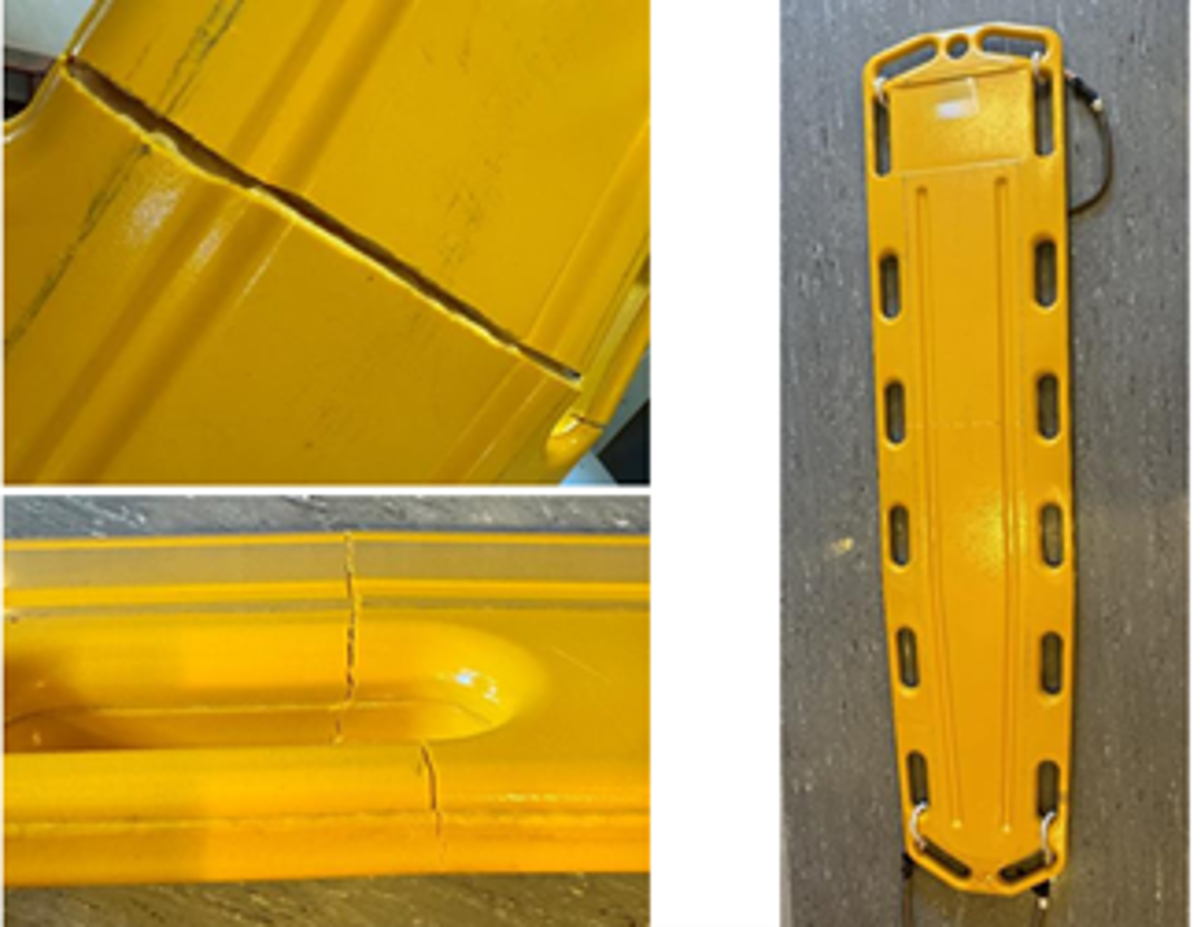MSF: A broken stretcher could have led to injury
- Safety Flash
- Published on 20 February 2025
- Generated on 10 July 2025
- IMCA SF 03/25
- 1 minute read
Jump to:
The Marine Safety Forum (MSF) published Safety Alert 24-09 relating to a broken stretcher.
What happened?
A medevac from a vessel required a patient to be transferred to the hospital. As the patient was being moved to a hospital bed, the stretcher cracked into two pieces with the patient on it. The patient was not further injured, but a more serious situation could have arisen had the patient been suffering from a back injury.

What went wrong?
On investigation it was discovered that the stretcher was 13 years old. When the manufacturer was contacted about the incident, they advised that this type of stretcher has a ‘life’ of five years and then should be replaced (stretcher ‘lives’ may vary depending on type and manufacturer).
Corrective actions taken / Recommendations
Stretchers should be examined and replaced if the shelf life has expired (this can be challenging as some manufacturers will not give a shelf life and advise that usage and visual examination will determine if the stretcher needs to be replaced or not).
Related Safety Flashes
-
IMCA SF 13/19
4 June 2019
-
IMCA SF 04/21
2 February 2021
-
IMCA SF 03/24
12 February 2024
IMCA Safety Flashes summarise key safety matters and incidents, allowing lessons to be more easily learnt for the benefit of the entire offshore industry.
The effectiveness of the IMCA Safety Flash system depends on the industry sharing information and so avoiding repeat incidents. Incidents are classified according to IOGP's Life Saving Rules.
All information is anonymised or sanitised, as appropriate, and warnings for graphic content included where possible.
IMCA makes every effort to ensure both the accuracy and reliability of the information shared, but is not be liable for any guidance and/or recommendation and/or statement herein contained.
The information contained in this document does not fulfil or replace any individual's or Member's legal, regulatory or other duties or obligations in respect of their operations. Individuals and Members remain solely responsible for the safe, lawful and proper conduct of their operations.
Share your safety incidents with IMCA online. Sign-up to receive Safety Flashes straight to your email.